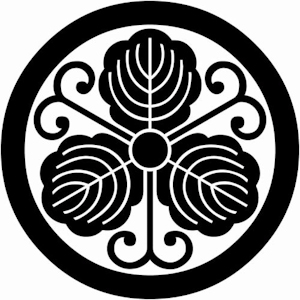 The Horii family, a descendant of the Fujiwara clan (http://en.wikipedia.org/wiki/Fujiwara_clan), was known as a merchant family that crafted, and sold ritual articles for Shinto home shrines for many, many years. However, the inspiration of two clan members drastically changed the destiny of the family, twice.
The Horii family, a descendant of the Fujiwara clan (http://en.wikipedia.org/wiki/Fujiwara_clan), was known as a merchant family that crafted, and sold ritual articles for Shinto home shrines for many, many years. However, the inspiration of two clan members drastically changed the destiny of the family, twice.
The first change came just as Japan headed into the Edo period. The Edo period marked the end of the war for unification of the country that had lasted for over hundreds of years, and with Tokugawa Ieyasu (the Shogun) at the helm, changes were to come. Seeing that land restrictions were fast approaching, the family used its fortunes to purchase some farmland outside of Kyoto.
The family used this patch of land to open a traveler’s inn, used some of it to have farmhands’ farm rice and vegetables, and then commenced in trade as the village headman.
For nearly 260 years, that was life for the Horii family. One could also say that that life did not change for the rest of Japan either. It was a time of peace and calm, and Japan was in general, shut out from the rest of the world. That is, until the Meiji Restoration in 1868, which ended the era of the Samurai rule and opened Japan to the world.
Japan started to modernize at a pace never seen before in history. The 4 classes of people (The Samurai, the farmers, the craftsmen, and the merchants) were combined into one, land reform happened, and people were free to start new endeavors.
This is when the next strike of inspiration hits the Horii family.
Horii Matabay (officially spelled Matabei) saw the opportunity, and bet on the future… “All chips in”. In 1887, he sold off the inn and the land associated with it, and used all of the family fortunes (that the family had been gathering for 260 years), to purchase as much farmland as he could,
His next move was even bolder. He leased the land out to relatives, and farmhands, and had them farm tea.
His vision was clear. With the limitations and barriers gone, he looked for the one item that the Japanese could not live without, the one item that Uji was known for… Japanese Tea. And the family flourished, along with the Uji region, becoming part of the “tea empire of Japan”.
The era of massive tea plantations ended around the beginning of WW II, and much of “Matabay’s farmland” was given away or sold to the families who farmed the land before and after WWII. Considering it is almost impossible to grow more than one type of tea per plantation, having various families focusing on what their land grows best depending on capacity, assisted in the growth and diversification of the local tea industry. As a result, the Horii family is still well respected, and to this day known for its excellent award winning tealeaves.
Currently, the “Matabay” tea farm specializes in high quality Matcha, while other “off-shoots” and/or relatives may specialize in Gyokuro, or Sencha.
Horii Tsuneo, the great great great grandson of Matabay says “Our strength lays not only in the quality of our tealeaves, but also in the strength of the combined family. We cannot and do not claim that all of the tea we sell is made by Matabay, after all, my farm only makes Matcha. But, it is all done in the “family”. If you look around, we not only have relatives producing various award winning Gyokuro and Sencha, we have deep family ties with those who blend the top tea in Japan, and the biggest wholesalers are family too. This is why, at Matabay, we can provide the absolute best tea in Japan, while keeping the price as low as possible”.
The hope of Horii Tsuneo, is to create the third major turning point for the Horii Family, and for the tea farmers of Uji.
“I spent my younger years as a professional baseball player, and played not only in Japan’s major league, but coached in Taiwan and in America. While traveling abroad, the poor quality of Japanese tea served around the world, was always shocking. It is actually even shocking in Japan at times, and is often impossible to find and sit down to a good cup of tea. My current goal is to try to provide the absolute best Japanese tea that Japan has to offer at an affordable price to the tea lovers around the world. Many of the teas you will find at “Matabay” are teas that are only sold to the finest Japanese restaurants, the kind that even I couldn’t afford when I was a pro ball player. We have also, for the first time in history, released our exclusive Matabay Matcha to the general public. Simply said, it will be difficult to find higher quality Uji tea. Now that Japanese tea, especially Matcha, is becoming more popular all over the world, I would hate to see people turn away from it because of the poor quality of tea that often circulates the market, and truly hope the tea lovers will find their taste buds satisfied with what they find here.”







